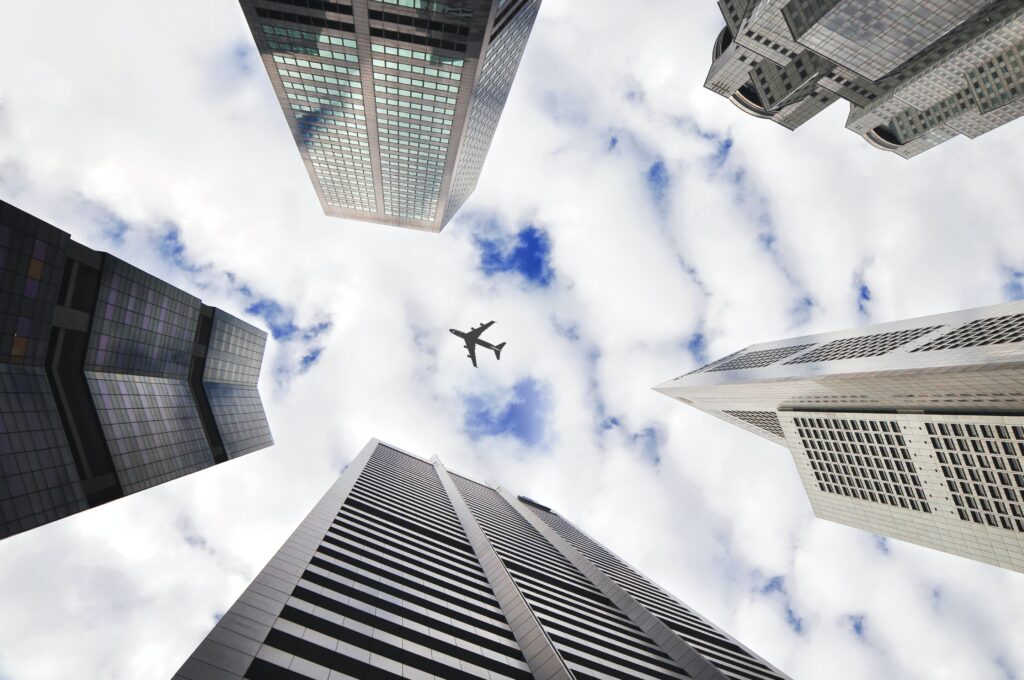Climate change researchers, especially professors, fly more than other researchers – but are also more likely to have taken steps to reduce or offset their flying.

The large-scale study – the first of its kind to survey climate academics about their travel for conferences, fieldwork and meetings – was carried out by CAST researchers and is published in the journal Global Environmental Change. In addition to this survey of the travel habits of over 1,400 university researchers, a follow-up experiment with 350 researchers explored the practical factors which helped and hindered individuals in choosing lower carbon travel options
CAST Director Professor Lorraine Whitmarsh, who led the study, said the findings were “unexpected” but said it also suggested “knowledge alone is not enough” to tackle global warming.
Our findings highlight that climate scientists, like many other professionals, can struggle to square their environmental commitments with competing professional and personal demands and academia itself is not doing enough to change this culture.
“Crucially, our research demonstrates the need for policies and ways of working to encourage and enable low-carbon travel and use of virtual alternatives – something which is already happening in light of Covid-19.
“Travel restrictions have required businesses, including universities, to replace a lot of physical travel with virtual interaction, such as online conferencing. These virtual options can be just as effective as face-to-face meetings, but at a fraction of the cost, as well as being more accessible for those with caring commitments.”
Flying is one of the most carbon-emitting actions and there have been growing calls from both within and outside the research community for scientists, and in particular climate researchers, to do more to curb their flying so their crucial message on the need to reduce aviation emissions is not undermined.
This study found “significantly” higher levels of flying among climate change researchers for work than researchers from other disciplines. The data indicated climate experts take about two – three flights per year, while non-climate researchers take two*. Climate and sustainability experts conduct more fieldwork, but even accounting for this, their international travel was still higher. It also found that levels of flying rose with job seniority.
Climate researchers did report higher levels of awareness and concern about the impact of aviation on climate change and as such were more likely to offset their flights, use alternative modes of travel or avoid travel. For example, 29% of climate researchers chose not to travel to a work event because of the carbon footprint of the travel, compared to 5% of other researchers.
However, the study found practical factors like family commitments and availability of low-carbon options were more important in predicting scientists’ actual flying behaviour; providing information about the impacts of aviation and support for workplace policies increases intentions to fly less.
“Those with the most knowledge of all – climate change professors – fly more than any other group. Our results strongly suggest knowledge alone is not enough to change workplace travel,” said Professor Whitmarsh.
“The data for our study was collected in 2017 – however little had changed in academia up until the global pandemic this year. It’s vital that new ways of working adopted during lockdown are embraced in the long term, not just for universities but for many other organisations and businesses that have tended to have high carbon footprints from travel.”
Kevin Anderson, professor of energy and climate change at the University of Manchester and former director of the Tyndall Centre for Climate Change Research, said it made for “uncomfortable” reading. Professor Anderson, who was not involved in this research, said:
This paper must be a catalyst for rapid change. We need to take a long hard look in the mirror, reflect on our research, and rapidly transition to an academia fit for the 21st Century. Perhaps then governments, businesses and wider civil society would take more note of our research and conclusions.
These findings are released as we launch our new Sustainability Charter – our commitment to a low-carbon research culture.
The charter seeks to recognise that climate change researchers have a particular responsibility to confront their environmental impact and seek out transformative solutions to climate change and other issues. For example, online conferences and home working can be better for work-life balance, allow wider participation, and cut costs.
The charter seeks to take direct action, but also to advocate for wider change, in four important areas: food, travel, consumption, and heating/cooling.
The commitments include:
- • Replacing physical travel with virtual alternatives and using low-carbon modes (i.e. avoiding flying) where physical travel is required;
- • Addressing food choices by ensuring all catering is vegetarian or vegan and reducing food waste;
- • Reducing consumption of resources;
- • Making low-energy choices in offices and conference venues;
- • Ensuring advocacy for low-carbon lifestyles and practices is central to researchers’ activities.
Read the full paper on use of aviation by climate change researchers here.
Find out more about the CAST Sustainability Charter here
*Figure revised (9 November 2020) following an amend to the journal paper. The overall conclusions of the research have not changed.


